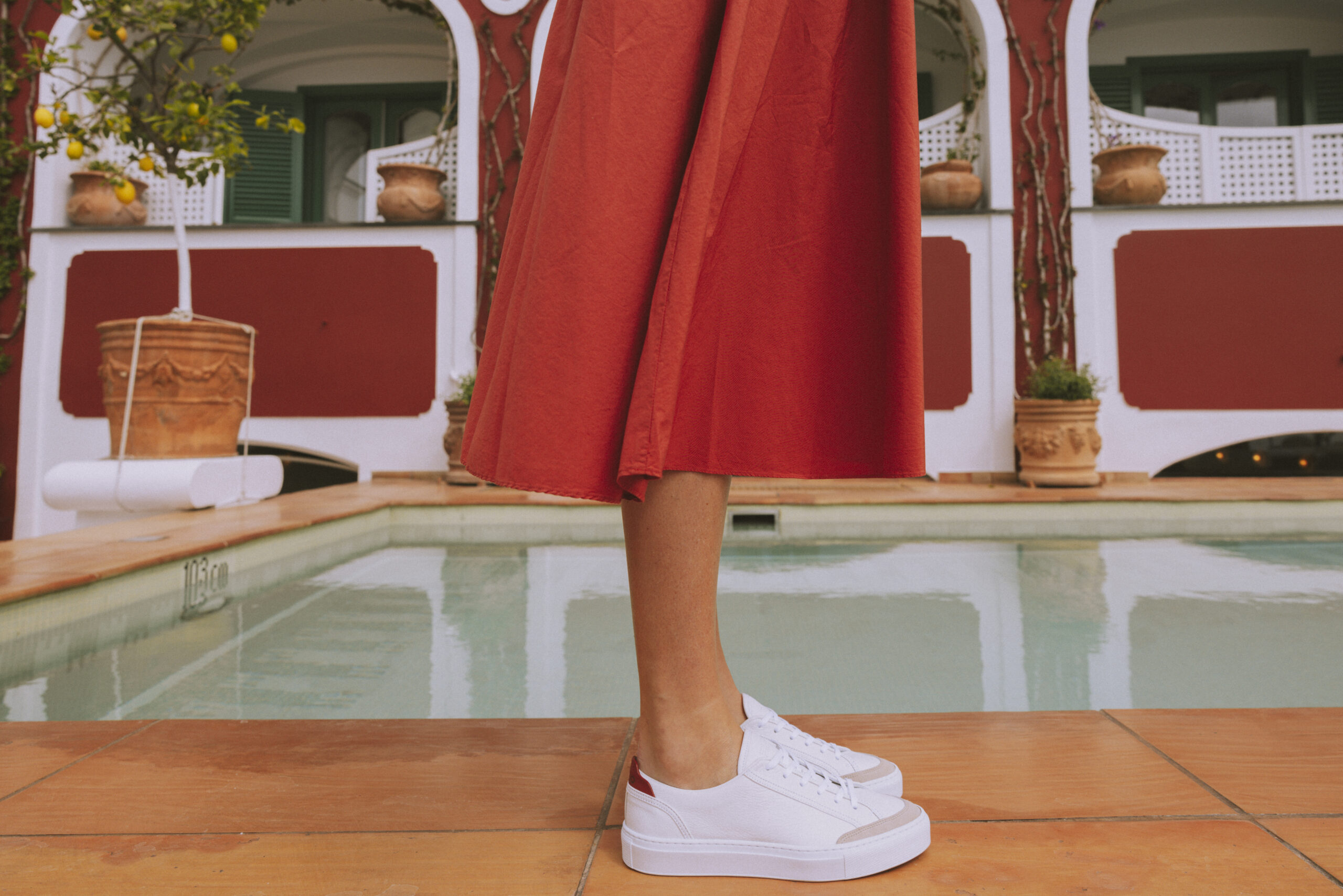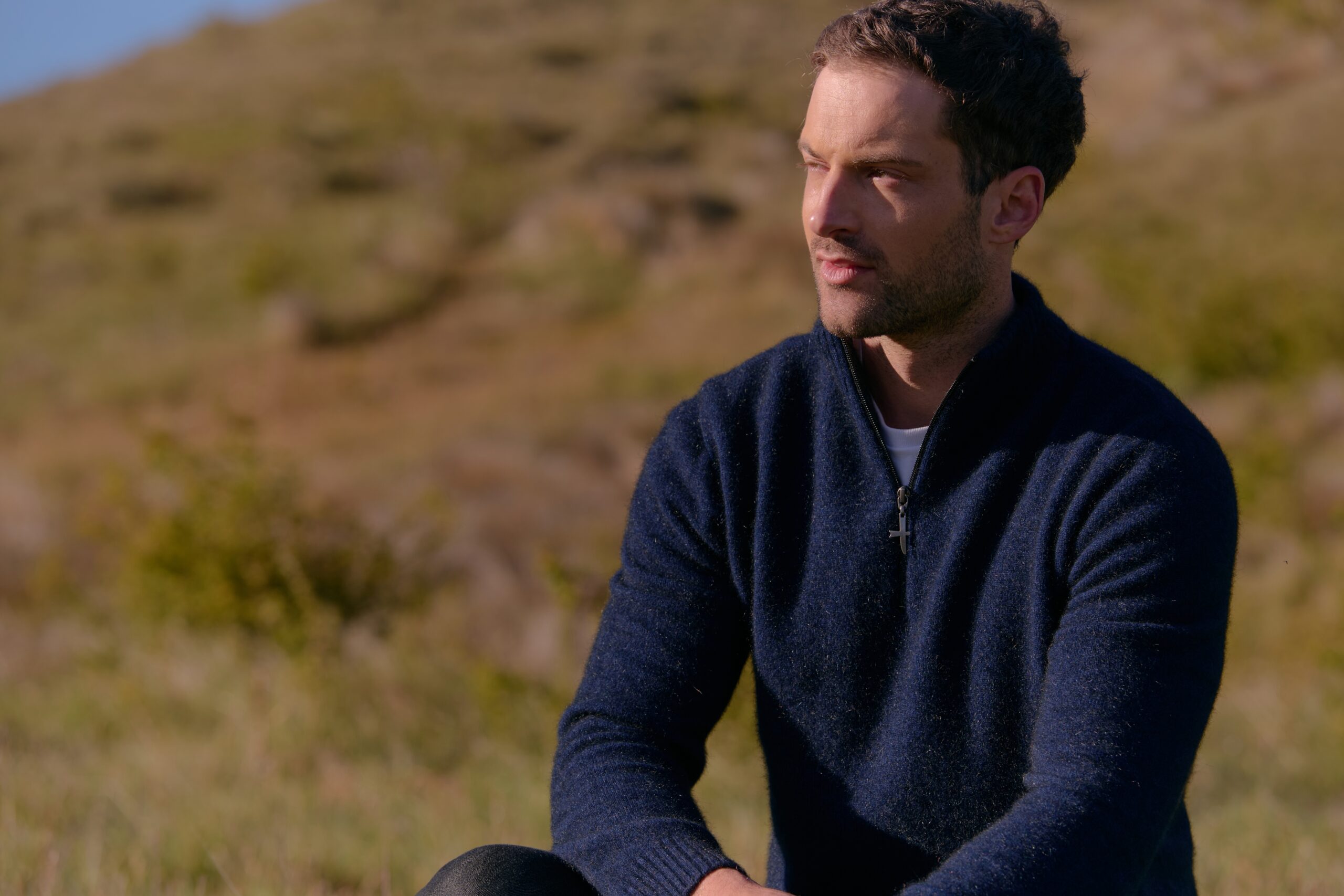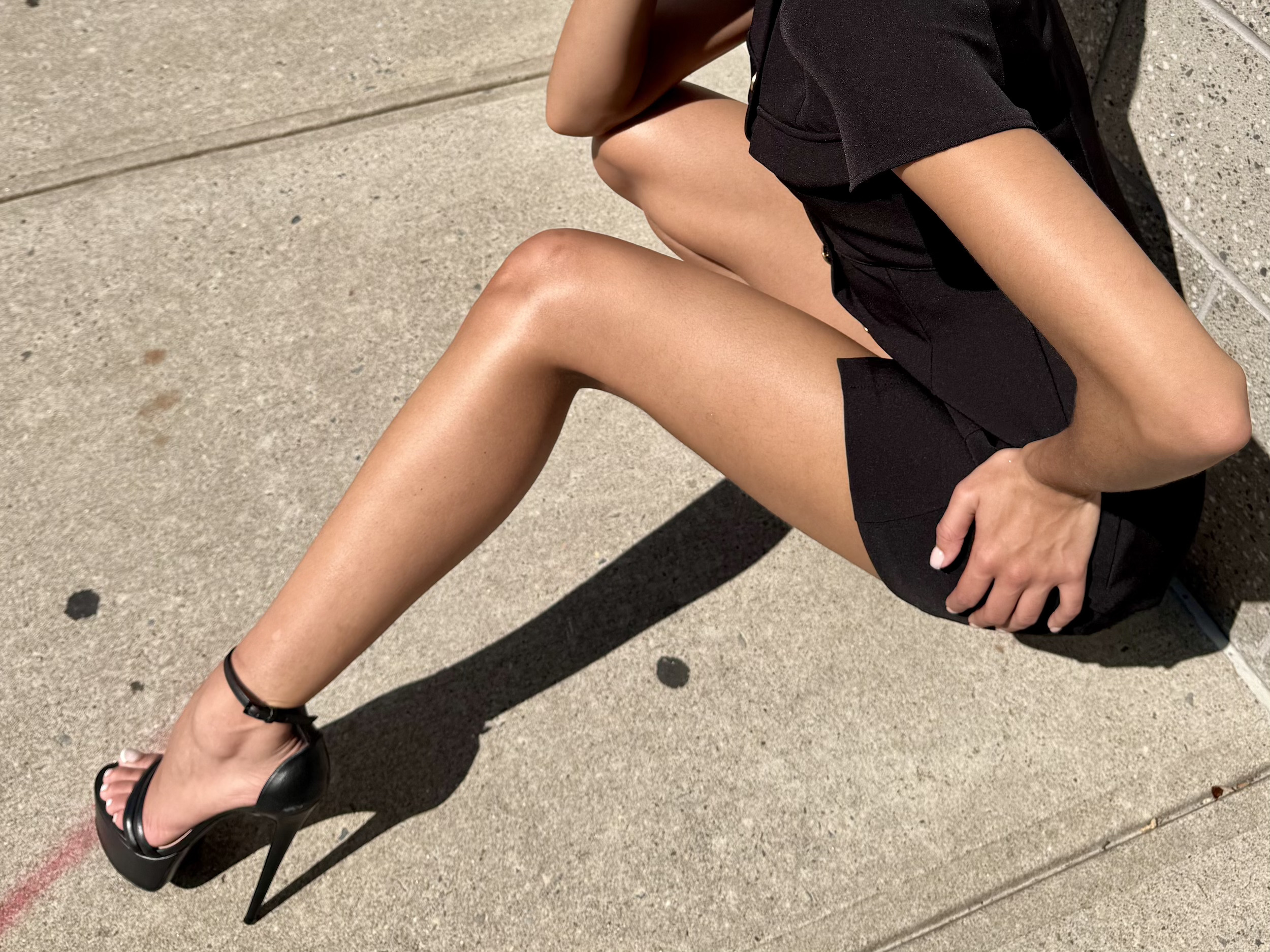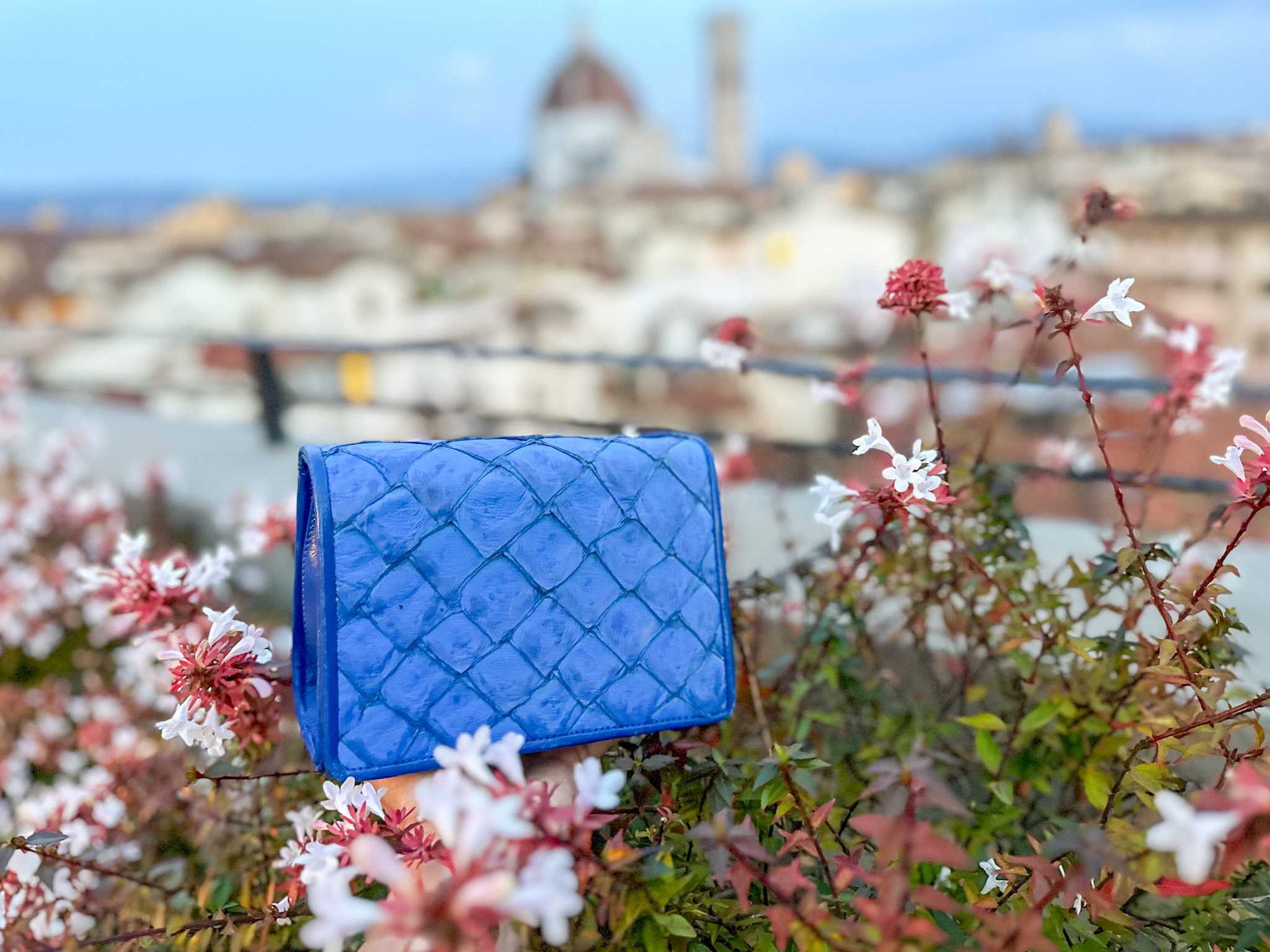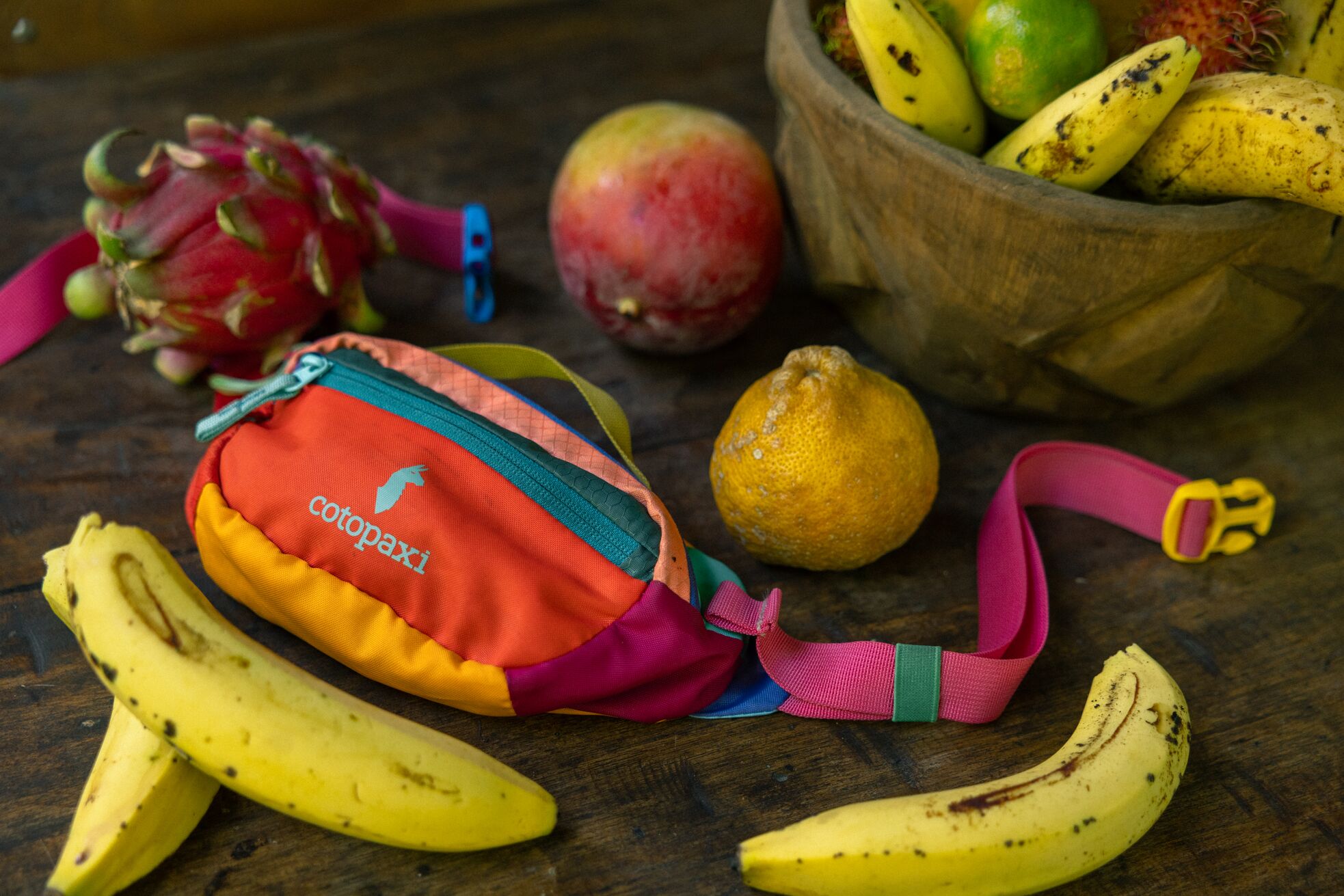NORTH STARS:
Waste Management
Carbon Footprint
Community Support
“The duo researched ways to avoid shoe components that were widely available commercially and instead pushed the envelope to develop better sustainable solutions, notably through their regenerative leather line.”
The Azure Road Take
Forever on the hunt for comfortable travel shoes that don’t crumble after the hardship I put them through—stairs in Amalfi, sprints through airports, cobblestones in Charleston—I came across Koio. Billed as a stylish eco-friendly brand that considers every aspect of design from soles to uppers, I decided to give them a go. I loved the shoes so much, I interviewed the company founders to learn more about their inspiration and processes. The innovation and thought that goes into supply chain and design serves as a reminder that myriad companies exist that make attractive apparel and footwear while doing less harm to the environment.
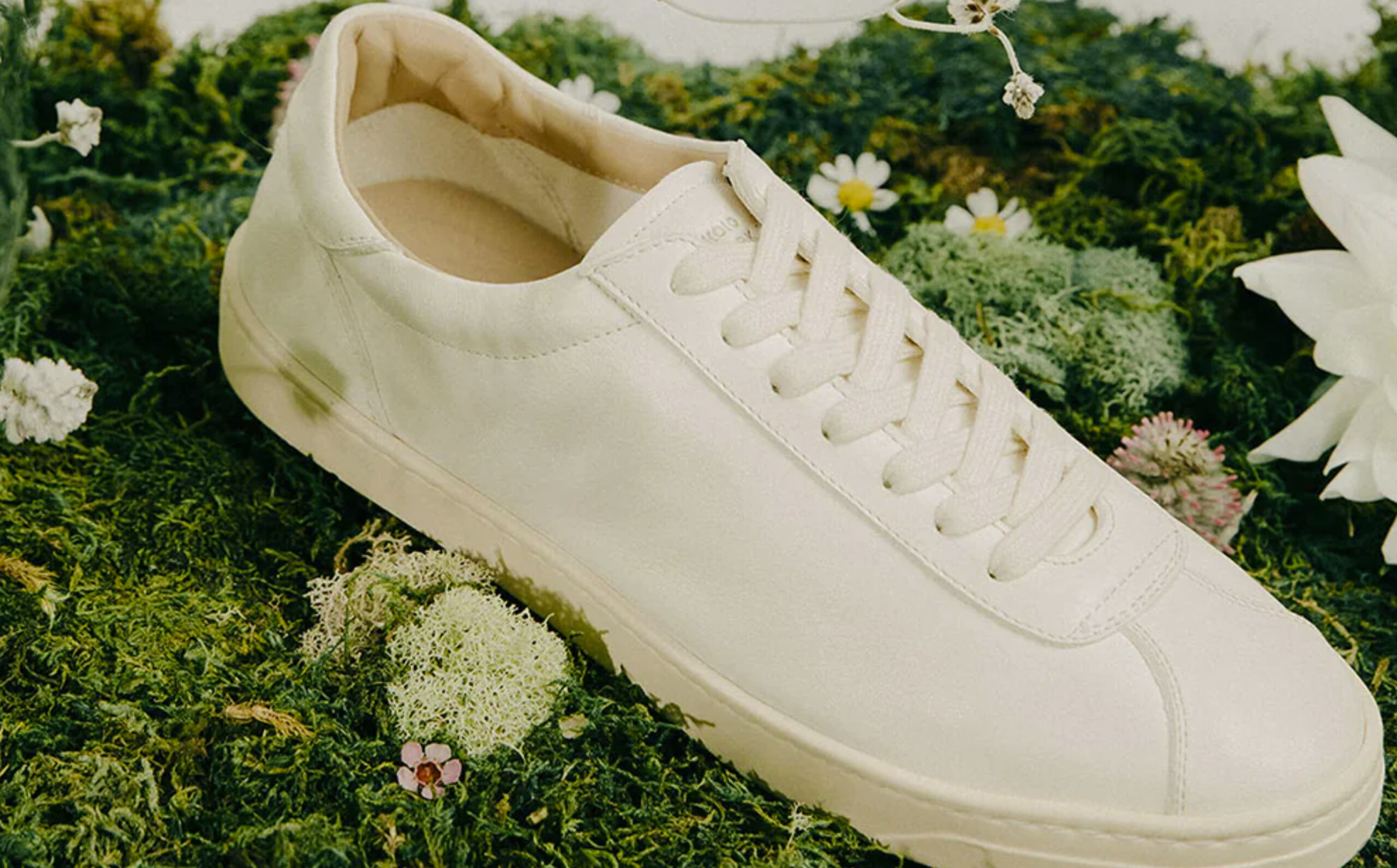
Courtesy of Koio.
Sustainability Chops
Footwear is one of the most environmentally and socially toxic industries. To address this, Koio launched the world’s first premium sneaker made with leathers from regenerative farms in 2022. With a new tanning process in the final phase, the modern luxury footwear brand will become fully regenerative by 2025. What does this mean?
Koio’s leather comes from farms in the Swiss Alps that are working regeneratively with cattle to restore Alpine ecosystems by reversing carbon emissions, restoring soils, and increasing biodiversity. (Regenerative cattle farming has its critics, however.) The Zeolite tanning process is considered a more environmentally friendly alternative to chrome tanning. It involves tanning the hides with minerals rather than chrome, aldehyde, and heavy metals. The LACTAE HEVEA soles are made in France using responsibly sourced milk from hevea trees. The entire process—from sourcing the milk to pouring it into molds—is completed by hand. All the components of Koio shoes are traceable back to a cow farm, cotton farm, or rubber farm.
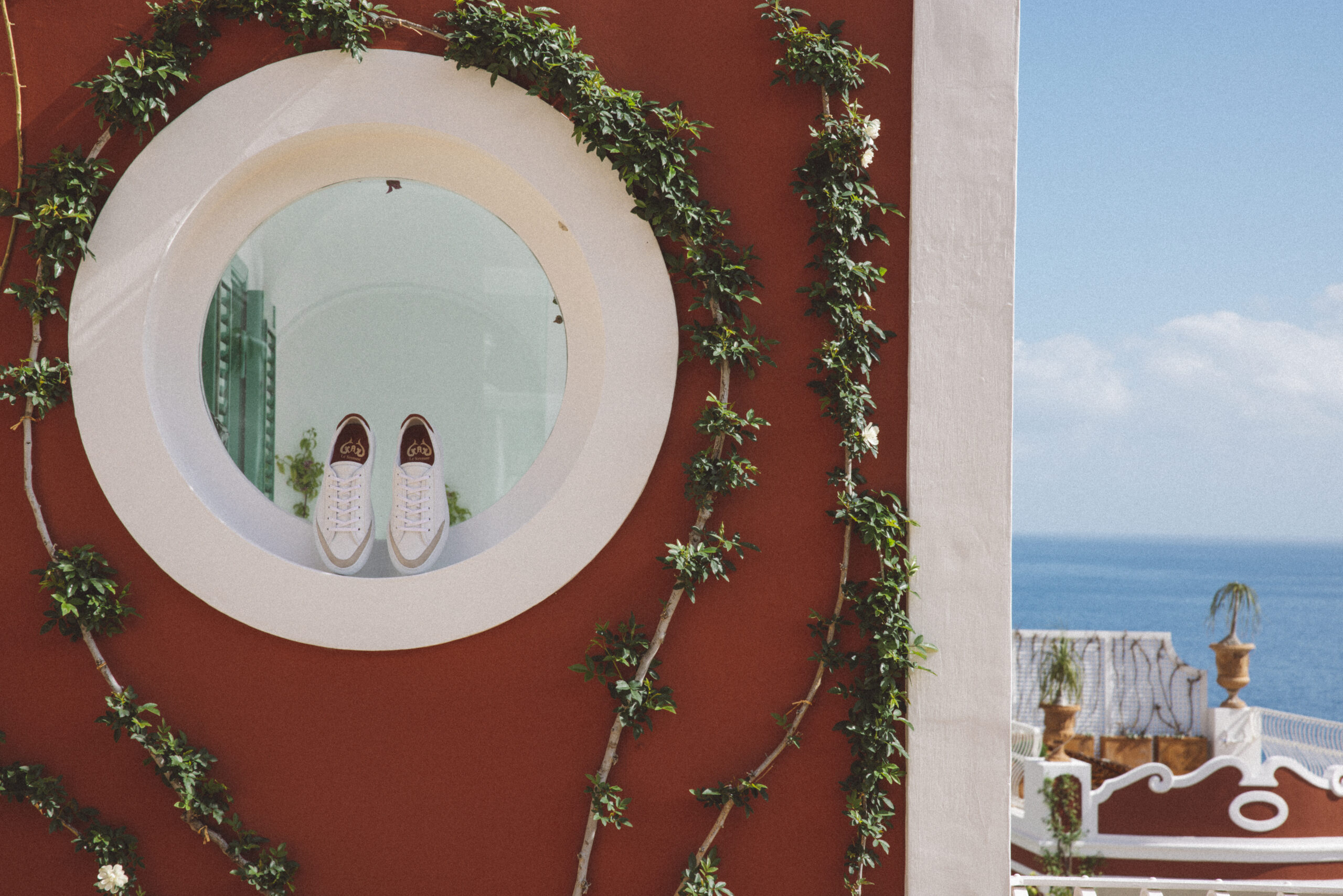
Courtesy of Koio.
The Look
Sexy, slick, and polished. Ready for the streets of Rome or dinner in Positano.
Koio makes both men’s and women’s shoes in its regenerative leather sneaker line. Colors range from black (onyx), chestnut (castagna), to white (summit). New men’s colors for the Capri line include pebble, charcoal, sandstone, and mocha. Each shoe is handmade in Tuscany, constructed from Zeolite-tanned full-grain regenerative cow leather, and partially lined with Leather Working Group (L.W.G.) certified Italian cow leather. Biodegradable soles are made from 100% natural LACTAE HEVEA, while the laces are made with organic cotton. The biodegradable insole comprises corn, wool, and kenaf (a fast-growing fiber plant). The outsoles may differ in shades of ‘cream’ due to the naturally varying levels of carotene in milk from the hevea tree. As proof of both style and substance, Koio recently collaborated with Le Sirenuse, the iconic hotel of Portofino on the Amalfi Coast. Exactly the place I want to climb steep cliff stairs for my next spritz in Koios.
Origin Story
Two German MBA students, Chris Wichert and Johannes Quodt, met at Wharton. Discovering they shared an enthusiasm for shoes, they decided to collaborate to create Koio with a vision for a premium sustainable sneaker company. Initially a school project, they grew increasingly committed to scaling for the real world.
As years of R & D passed, the goal post on what the industry – and Wichert and Quodt – viewed as sustainable changed significantly. Tweaks to their design included sourcing leather from suppliers who were Leather Working Group (L.W.G.) Gold Medal Certified and switching soles from standard fossil fuel-based rubber to a mix of natural and recycled rubber. The duo researched ways to avoid shoe components that were widely available commercially and instead pushed the envelope to develop better sustainable solutions, notably through their regenerative leather line. The ultimate goal: create a shoe from 100% leather sourced regenerative farms while also being 100% biodegradable.
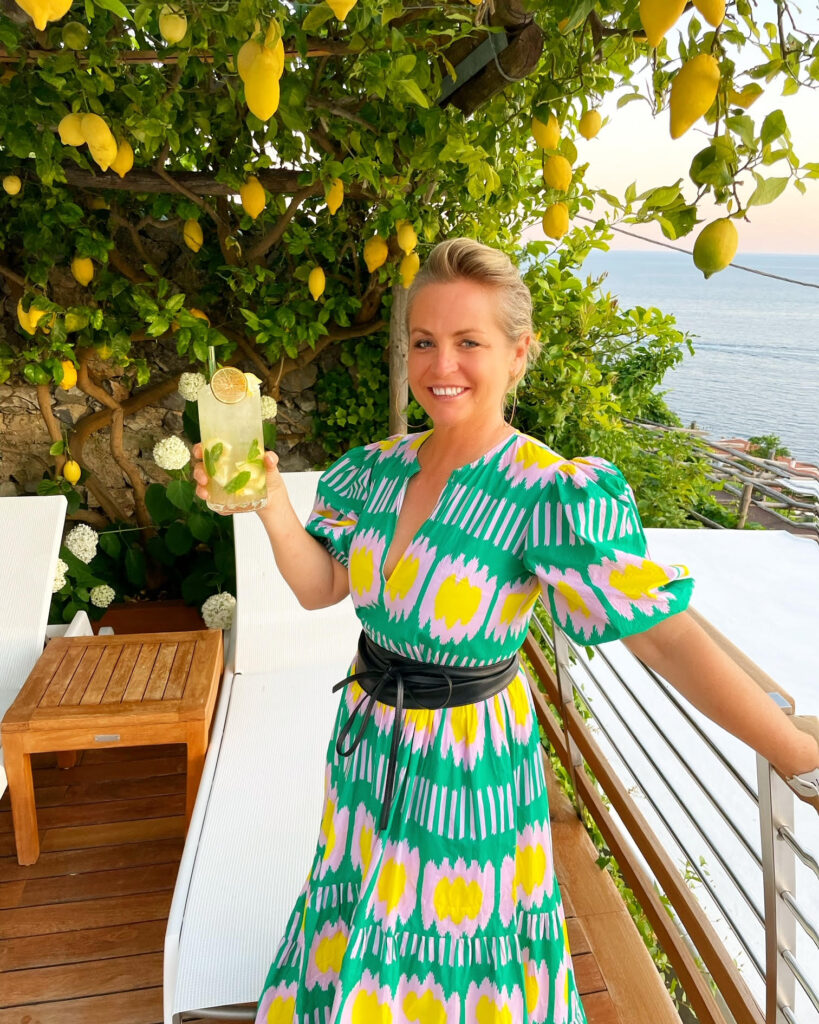
Founder and CEO of Azure Road, Lauren Mowery is a longtime wine, food, and travel writer. Mowery continues to serve on Decanter Magazine’s 12-strong US editorial team. Prior to joining Decanter, she spent five years as the travel editor at Wine Enthusiast. Mowery has earned accolades for her writing and photography, having contributed travel, drinks, food, and sustainability content to publications like Food & Wine, Forbes, Afar, The Independent, Saveur, Hemispheres, U.S. News & World Report, SCUBA Diving, Plate, Chef & Restaurant, Hotels Above Par, AAA, Fodors.com, Lonely Planet, USA Today, Men’s Journal, and Time Out, among others.
Pursuing her Master of Wine certification, she has also been a regular wine and spirits writer for Tasting Panel, Somm Journal, VinePair, Punch, and SevenFifty Daily. Mowery is a graduate of the University of Virginia and Fordham Law School, and she completed two wine harvests in South Africa.
Follow her on Instagram @AzureRoad and TikTok @AzureRoad
North Stars: Carbon Footprint, Community Support, Waste Management


